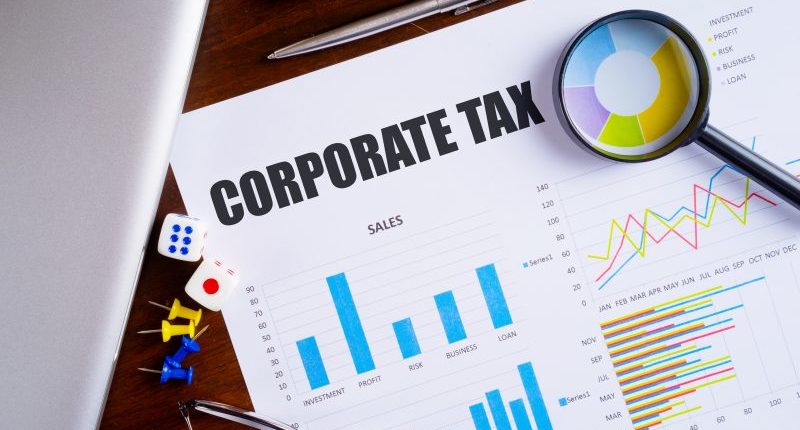The Finance Minister, Mrs Nirmala Sitharaman has announced a slew of measures to reduce the overall tax incidence on companies. The FM has also announced low corporate tax rates, a reduction in the Minimum Alternate Tax rate (MAT) for companies and a booster for the equity market.
Addressing the need of the corporate sector for a low corporate rate to promote growth and investment, the FM has proposed two new provisions:
- A domestic company has to pay a reduced corporate tax of 22% with effect from the FY 2019-20 (corresponding to the AY 2020-21). The reduced rate can be availed on the condition that such domestic companies will not claim any exemptions or incentives under the income tax law. The effective corporate tax rate is 25.17% inclusive of surcharge and cess. Further, such companies would not be liable to pay MAT. This provision is optional and domestic companies may either choose the benefits or pay the applicable tax rate and claim the exemptions or incentives.
- To encourage manufacturers and boost ‘Make in India’, a provision is announced for domestic companies, incorporated on or after 1 October 2019. The benefit is available with effect from the FY 2019-20. In the case of a new domestic company making an investment in manufacturing will have the option to pay an income tax rate of 15%. The reduced rate is available provided that the new domestic companies do not claim any exemptions or incentives under the income tax law. The effective corporate tax rate is 17.01% inclusive of surcharge and cess. Also, such companies are not liable to pay MAT.
In the case of companies who do not choose the above concessional tax regime, they shall continue to pay tax at the pre-amended rate. However, such companies can avail the concessional tax rates after the expiry of the tax holiday or exemption period. Once they exercise the option, they shall be liable to pay tax at 22%. Further, the option once exercised cannot be withdrawn.
Also Read: Reducing Corporate Tax Can Help India Achieve a $5 Trillion Economy
In case of companies who do not opt for the concessional tax regime and continue to avail tax holiday, the companies will be entitled to a pay a reduced MAT rate of 15% from the present rate of 18.5%.
- An enhanced surcharge of 25% on the total income between Rs 2 crore and up to Rs 5 crore and 37% on income above Rs 5 crore was announced in the Union Budget this year. The surcharge effectively increased the tax on the entire income including capital gains. It also acted as a dampener on the equity market. Hence, to stabilise the flow of funds in the capital market, the FM has announced a withdrawal of the increased surcharge. Consequently, the capital gains arising from the sale of equity share of a company or unit of equity oriented fund or unit of a business trust, which are liable for STT will be exempt from the surcharge. The reduction would apply to capital gains arising for an individual, HUF (Hindu Undivided Family), AOP (Association of Persons), BOI (Body of Individuals) and AJP (Artificial Juridical Person).
The high surcharge will not apply to capital gains arising from the sale of any security (including derivatives) in the hands of FPIs (Foreign Portfolio Investors).
- To provide relief to listed companies, which have already made a public announcement of buyback before 5 July 2019, it is proposed that tax on buyback of shares in case of such companies shall not be charged.
- The scope of spending on CSR 2 will be expanded. The CSR 2% fund can be spent on incubators funded by the Central Government or the state governments or any agencies or Public Sector Undertaking of the Central or state government, and contributions to public-funded universities, IITs, National Laboratories and autonomous bodies (established under the auspices of ICAR, ICMR, CSIR, DAE, DRDO, DST, and Ministry of Electronics and Information technology) engaged in conducting research in science, technology, engineering and medicine aimed at promoting SDGs.
The amendments mentioned above would be brought by way of Taxation Laws (Amendment) Ordinance 2019 amending the Income Tax Act, 1961 and the Finance (No. 2) Act, 2019 all introduced by way of the ordinance).
The total revenue foregone for the reduction in corporate tax rate and other relief estimates at Rs 1,45,000 crore. The above tax rates would bring the Indian corporate tax rate on par with most the Asian and south-east Asian economies.
For any clarifications/feedback on the topic, please contact the writer at sweta.dugar@cleartax.in
I am a Chartered Accountant by profession. I specialise in personal taxes and corporate income tax matters. I am an avid reader and track developments in financial markets, economy and other market developments.





